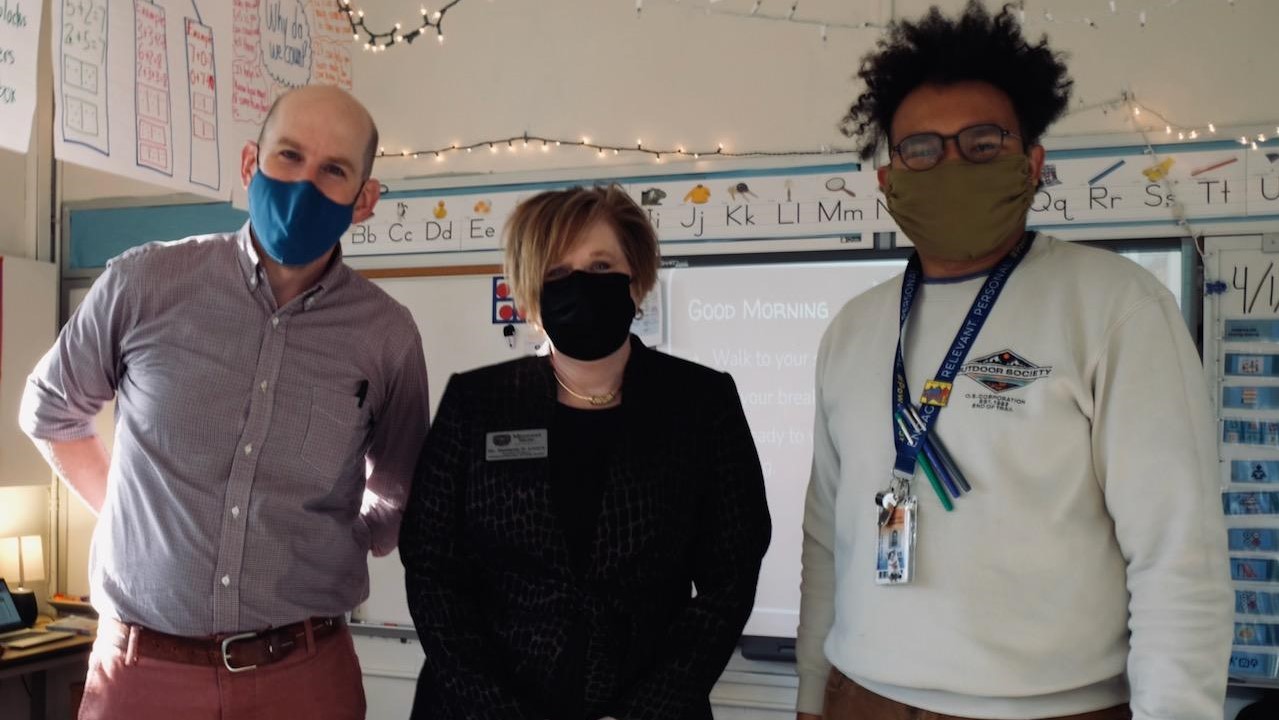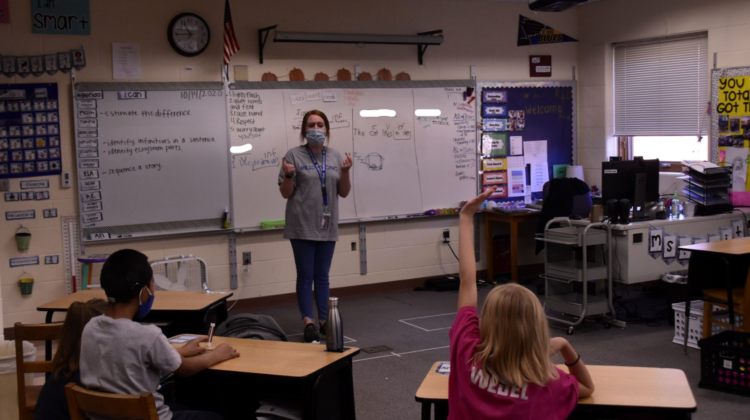Being a beginner at anything can be difficult. For beginners Kaitlin Voss and Marcus Bullard, alumni of Missouri State’s education program, there was no shortage of difficulties as they began their teaching careers.
Their hard work to overcome the many challenges they face as teachers is not going unnoticed. Bullard and Voss have both been recognized as Missouri Association of Colleges for Teacher Education (MACTE) 2021 Outstanding Beginning Teachers.
Voss graduated in 2019 with her bachelor’s in education of the deaf and hard of hearing and in 2020 with her master’s in the education of deaf and hard of hearing. She is currently a third-grade teacher at the Kansas School for the Deaf.
Bullard graduated in 2019 with his bachelor’s in elementary education and in 2020 with his master’s in educational technology. He is currently a second-grade teacher at Westport Elementary.
Q&A with outstanding beginning teachers
Both teachers shared details about their careers, offered helpful advice for the classroom and relayed pleasant memories from their time at Missouri State:
What was the most challenging aspect as you began teaching?
Voss: Figuring out what works best for each of my students is definitely the biggest challenge. And, of course, COVID has been an added struggle, but if I can get that done in my first year, then I guess the rest will be a breeze.
Bullard: Navigating through a new school, learning things about curriculum, managing student conflict and helping students have productive conversations with each other were probably my biggest challenges. Coming from MSU, I felt prepared with being creative, and I had strategies that I could use. In your first year of teaching, you learn a whole different set of strategies. Going into a school, you kind of have an idea of how the school works, but you don’t truly know the culture of the school or how the students function day to day.
How were you able to overcome those challenges as a new teacher?
Voss: Talking with other teachers. Thankfully, I have such a great support system – teachers, my principal – they’re all amazing. Also, I ask my kids. I honestly rely on them because they know themselves. Having them as an active participant in trying to figure everything out definitely helps.
Bullard: Last year I was in a team of four teachers teaching in the second grade. Having them as a support system was a huge deal for me. I learned that it’s okay to lean on other people. You’re not in this teaching world alone. So, seeing all these positive role models influenced my own teaching.
What are some of the most rewarding aspects of being a teacher?
Voss: Just seeing their faces – like when we came back from spring break – and seeing those lightbulb moments and the little connections that they make is so rewarding. It makes the challenges all worth it.
Bullard: The most rewarding thing is being able to be a positive role model for my kids.

What is one thing that you learned while at MSU that has paid off to know as you began your career in education?
Voss: MSU did a great job of readying me for this diverse group of students with skills like utilizing your visuals, acting things out and making it as engaging as possible. Also, we have a preschool at Missouri State in Ann Kampeter Health Sciences Hall. That was probably my favorite experience, just to be able to have that connection right there: you sit in class, you learn and then you walk downstairs, and you get to apply it to real life.
Bullard: My focus was educational technology for my graduate degree, so having a background in how to facilitate learning online was definitely a big help. With COVID, it was scary because we didn’t know when we were going to see our kids again or how we were going to be effective teachers. If I didn’t have those classes, I wouldn’t have been able to be successful with virtual learning.
What is one of your favorite memories from your time at Missouri State?
Voss: Being able to see the deaf community in action was probably the coolest experience – just going to the mall for a chat or to a coffee shop to hang out. We also had a big picnic together with people who are deaf and hard of hearing in Springfield and surrounding areas – one in the fall and one in the spring. So, yeah, MSU was the greatest experience I could have ever asked for in a college, and not just in my program, but in the Springfield community.
Bullard: One of my favorite memories was the first night – meeting people that I know will probably be in the rest of my life. I lived in a Living Learning Community (LLC) and there was a night at the rec center where LLC students could mix and mingle. Without MSU, I wouldn’t have the little close-knit group of friends that I have. I’m in Springfield and they’re in St. Louis and we still talk every day.



